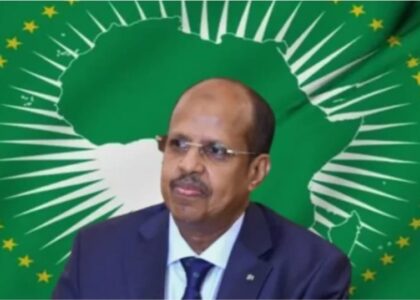The International Tribunal for the Law of the Sea (ITLOS) is one of the dispute settlement mechanisms of the United Nations Convention on the Law of the Sea (UNCLOS). The UNCLOS comprehensively laid down rules governing all possible activities in the oceans and the limits of rights States of different maritime categories are entitled to exercise over any part thereof.
The Tribunal recently published the list of candidates nominated by member States to fill seven vacancies in the members (Judges) of the Tribunal that will be vacant on 30 September, 2023 [here]. From 12 to 16 June, 2023, there will be election to elect seven from the ten nominations received by the Tribunal. By article 2(1) of its Statute, the Tribunal is composed of a body of 21 independent members, “elected from among persons enjoying the highest reputation for fairness and integrity and of recognized competence in the field of the law of the sea.” By article 4 of the Statute, prospective members are elected by secret ballot from the list of persons nominated by member States. By article 5(1), the members of the Tribunal shall be elected for nine years, subject to re-election for another term and no two members of the Tribunal may be nationals of the same State (article 3(1)).
Geographical Group as established by the General Assembly of the United Nations
There is the further requirement in articles 2(2) and 3(2), for the sake of equitable geographical distribution, that there shall be no fewer than three members from each geographical group as established by the General Assembly of the United Nations [here]. There are five geographical groups, as follows: African States (54 States); Asia-Pacific States (55 States); Eastern European States (23 States); Latin American and Caribbean States (33 States); and Western European and other States (29 States). If we go by this grouping, five slots should be up for the taking by each of the geographical groups at every point in time; but since it is a minimum of three per group, there would always be the possibility of certain groupings having more than five, if practice allows it. However, it would be unfair to allow a geographical group to have more than five, when there are nominations (all other things being equal) of a suitably qualified person(s) from the zone or zones that would end up having less than five. Fair enough, practice has not permitted a situation where a zone has more than one.
More, Less and None
An examination of the list of members of the tribunal since it was first constituted would reveal that some States have had more; and even consistent and unbroken representation in the tribunal while many other States have not even had the chance of a single membership tenure [here]. Below is the list of States that have had at least one of their nationals elected into the Tribunal. The number of nationals the States have had, if more than one is stated in parenthesis. The States are: Lebanon, United Kingdom, Malta, Cameroon, Algeria, Jamaica, Paraguay, Brazil (x 2), Argentina (x 2), Italy, India (x 2), China (x 4), Iceland (x 2), Cape Verde, Chile, South Africa, Iceland, Mexico, , Cameroon (x 2), United Republic of Tanzania, Argentina, Thailand, Russian Federation (x 3), Ukraine, Belize, The Netherlands, Trinidad and Tobago (x 2), Tunisia, Ghana, Senegal, Grenada, Republic of Korea (x 2), Poland, Italy (x 2), Austria, Croatia, United Republic of Tanzania, Germany, Japan (x 2), Bulgaria, and France.
Interestingly, China, Japan, the Republic of Korea, India and Russia, have each consistently have a member at the Tribunal. In other words, these States have always had a national on the Bench of the Tribunal since its inception. Four of these States, bar Russia, are from the Asian Pacific Group. These States have consistently held four of the five slots ever occupied by the group, with Thailand and Lebanon occupying the remaining one slot at different times. It is thus been a case of more, less and none. It would appear, though, from the current nomination that there may be a sort of concession by some of the States of a group to the effect of a collective nomination of a national of one of the States. An example is the collective nomination of a Japanese by Bulgaria, Dominica, Japan, Malta, Palau, Paraguay, Tonga, for the June, 2023, election.
Response to Call for Nominations
In response to the note verbale of 17 November 2022, communicated to all member States (including Nigeria), member States were required to submit their nominations from 4 January to 3 March, 2023. Apparently, Argentina, Iraq, Denmark, Finland, Iceland, Norway, and Sweden (jointly nominating a candidate), Bulgaria, Dominica, Japan, Malta, Palau, Paraguay, Tonga (jointly nominating a candidate), South Africa, Sierra Leone, Poland, Uruguay, Republic of Korea and Burkina Faso made nominations for the vacancy, as their nationals have been listed for the elections.
An Uninterested Nigeria
When placed side by side the list of past and present membership of the Tribunal, one would find that some States appear uninterested in nominating members for the position. Could it be that there are no qualified individuals in those States or the States are just not interested in making nominations? Unfortunately, most West African States fall into this category. It is difficult, for instance, to speculate on why a state like Nigeria, which apart from being a coastal State with extensive coastlines, has never had its national on the Bench of the Tribunal. The only guess one could rightly make is that the Nigerian government is not interested in, or simply nonchalant towards, the Tribunal; it can never be that there are no qualified Nigerians that could be nominated, given the array of Nigerian experts in the field. What is even more troubling is the fact that Nigeria came before the Tribunal as late as 2019-2021 in M/T “San Padre Pio” (No. 1) [here] and M/T “San Padre Pio” (No. 2) between Switzerland and Nigeria [here]. The latter even came to the Tribunal by way of a special agreement between the parties. If these cases did not alert the government to the urgency of investing in capacity building in the area, and in investing more interest in the happening at the Tribunal, then one cannot but wonder was else will be required.
Tribute to the Vigilant ECOWAS States
We must pay tribute to ECOWAS States that have so far shown the needed interest in the Tribunal. We pay tribute to Ghana, Senegal, and Cape Verde which have had their nationals (who are also ECOWAS Citizens) on the Bench of the tribunal in 1996 to 2005, 1999 to 2020, and since 1999, respectively. Instructively, since 2020, the region has only one representation (Cape Verde) in the tribunal. Their leadership role in this regard is very well noted.
Likely Outcomes and call for ECOWAS to Support its Own
Of course, South Africa, which currently has an outgoing member, has nominated what may be called a replacement, and we are confident that its Nominee would gain the slot. It is on this note that we commend Sierra Leone and Burkina Faso for their nominations and would like to call on every member of ECOWAS to vote their Nominees. Nevertheless, it is difficult to see how the Sierra Leone and Burkina Faso Nominees will not be successful, given that the African Group of States actually has two new nominations as that of South Africa will (so to say) replace the South African, who will be leaving the Tribunal. With all three, the African Group would have five nominations, which now appears, from the arguably established practice of the Tribunal to be the maximum each group of States is entitled to have.
Benefits of Membership
There are two important reasons why States that have not had members in the Tribunal should seek to do so. The first is that the mere fact that a national of a State is a Judge of an international court, such as the International Court of Justice (ICJ) and the ITLOS, inspires international law expertise and aspiration on the part of the Judge’s compatriots. The second advantage, which should not ordinarily be encouraged but is the reality, is that members sometimes wear the nationality garb, when a matter affecting their State or region comes before the Tribunal. Though this has not been seen at the ITLOS, the fact that it is quite common with adhoc Judges in the ICJ, would mean that it is not impossible for members of the Tribunal to act in the same manner.
Conclusion
We do not consider it representative enough for certain States to monopolise the slots of their group of States at the expense of the other States within the group. We would therefore like to urge that a State whose national has successfully completed the statutory two tenures should give way for another State within the group to have a turn at the Bench.
It is inexplicable that a country like Nigeria has never had its national on the Bench of the Tribunal. It is our sincere hope that Nigeria would take its responsibility to its people and the region in the area of the law of the sea serious enough to ensure that its national sit on the Bench in the next round of nominations. We are confident that Nigeria would readily enjoy the support of our region and beyond in the election of its national.
@Centre for Community Law, May, 2023








